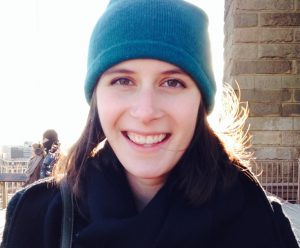Read Catherine Medalia Johannet’s thesis Moving Beyond the Disability Memoir: A Critical Study of Judith Scott’s Fiber Art, advised by Sayantani Dasgupta (Narrative Medicine/CSER/ICLS).
Annually, the Institute for Comparative Literature and Society awards one to two senior thesis awards and summer internships to our majors in memory of Catherine Medalia Johannet, CC’15. Here is Catherine’s thesis, shared by her family.
Moving Beyond the Disability Memoir: A Critical Study of Judith Scott’s Fiber Art, Catherine Medalia Johannet, CC’15, Medicine Literature and Society, advised by Sayantani Dasgupta (Narrative Medicine/CSER/ICLS).
The reader may need to understand that Judith Scott had multiple disabilities- sensory and intellectual- impacting her ability to participate in the “memoir boom”.
From Catherine’s thesis:
The conflation of the biography of an artist with the artwork itself is a typical phenomenon in the analysis of artistic works by people with disabilities. In this thesis, I explore the work of Judith Scott, focusing on the reception of her fiber art by the art world. I use her work as a lens to better understand how people with intellectual disabilities can participate in the “memoir boom” of the past couple of decades. Autobiography has become an important tool for people with disabilities to make their lives visible to the rest of the world. As vital as these contributions have been, I analyze how they exclude those whose disabilities prevent them from being able to produce a piece of conventional life writing. I then explore the concept of visual autobiography, a potentially accessible form of life “writing” for people who cannot and/or do not want to produce a written narrative. Both types of autobiography, however, turn the ability to narrate one’s life into a necessary way to demonstrate one’s personhood. I use the various receptions of Scott’s fiber art to understand the usefulness and limitations of visual autobiography and memoir in general. Scott’s oeuvre is both thought provoking and visually compelling. There is no correct way to read her work—its importance lies in its ability to raise questions about the ways in which personhood is granted to people living with intellectual disabilities.









